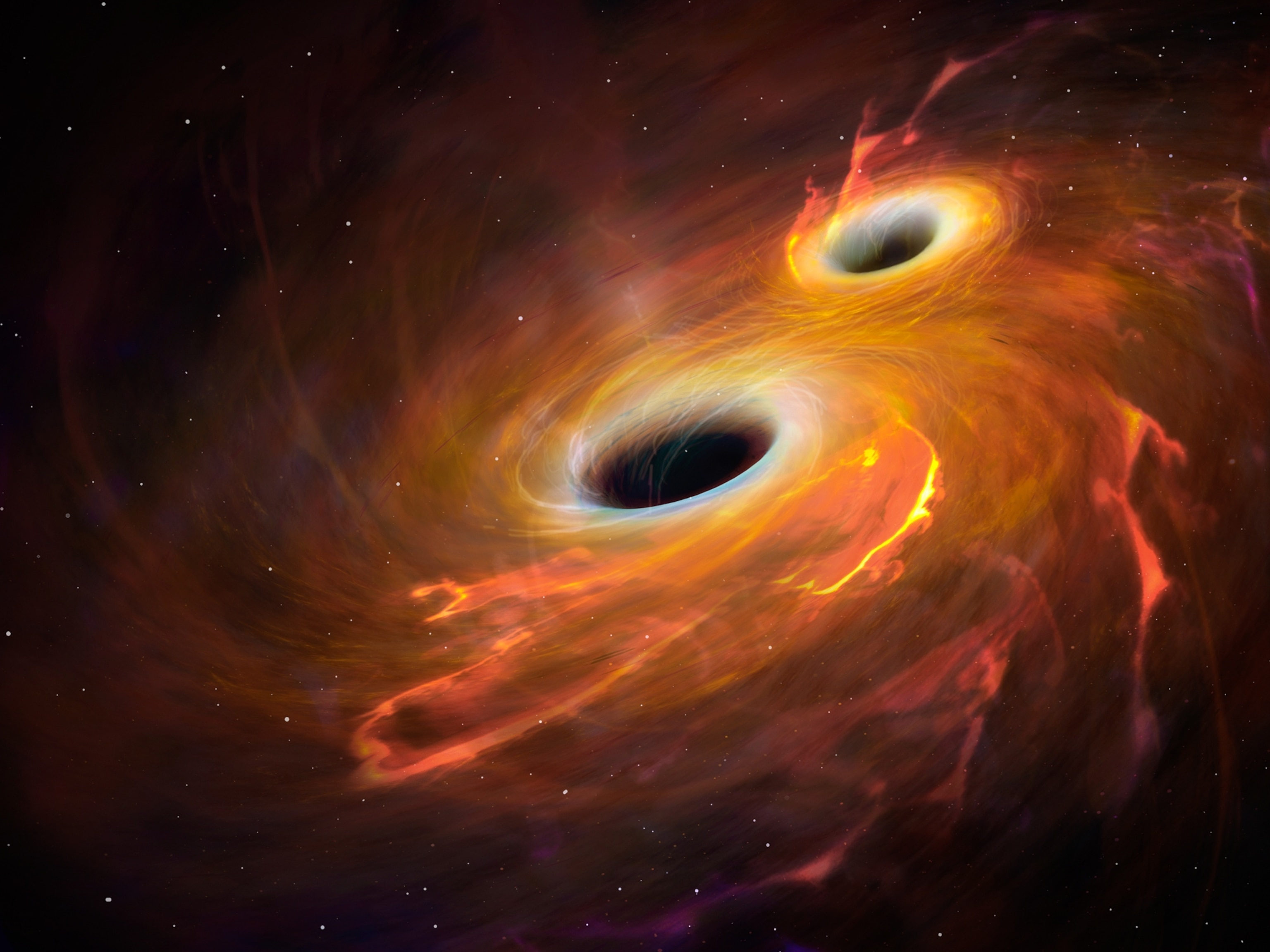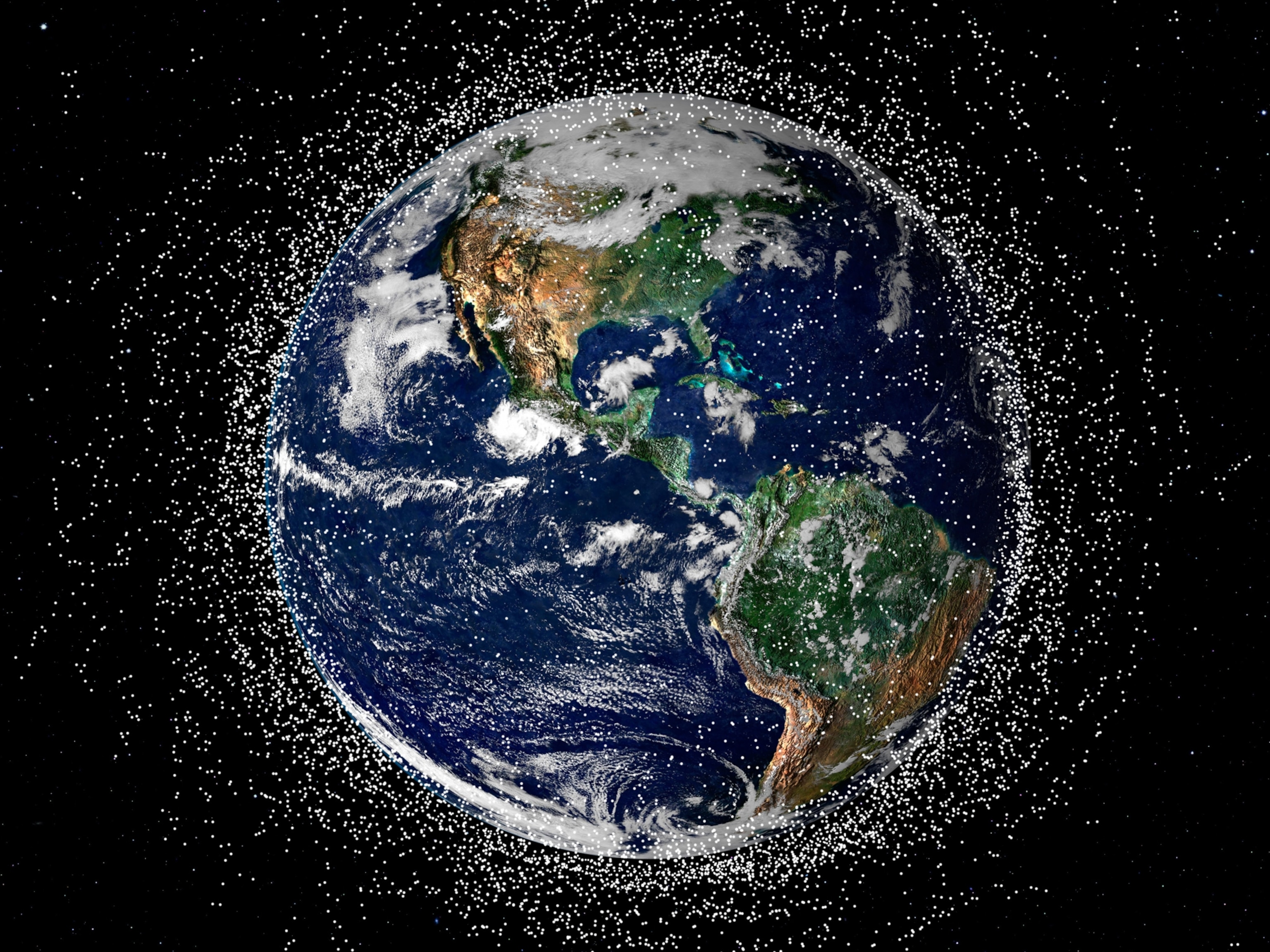Did Pluto ever actually stop being a planet? Experts debate.
It’s been 18 years since Pluto’s celestial status was called into question—yet the matter seems far from settled. We asked experts from both sides to make their case.

In 2006, the world lost a lot of stars—actress Shelley Winters, soul icon James Brown, naturalist Steve Irwin—but only one planet: Pluto.
Declared the ninth planet in our solar system after its discovery in 1930 by American astronomer Clyde Tombaugh, Pluto is small, marble-colored, and became quickly beloved thanks to its association with Mickey Mouse’s pet dog (who was originally named Rover but renamed after the planet in 1931).
Then, in 2006, Mike Brown, CalTech professor of astronomy and author of How I Killed Pluto and Why it Had it Coming, crashed the party and took away Pluto’s planetary classification. Ever since, the worlds of science and pop culture have debated Pluto’s fate.
To celebrate the 94th anniversary of Pluto’s discovery, we sat down with Brown and Philip Metzger, retired planetary physicist at NASA’s Kennedy Space Center (and current associate scientist at the University of Central Florida), to get some answers. Are Brown and likeminded people correct in reducing Pluto’s significance and instead focusing on new discoveries like the yet-unconfirmed “Planet Nine”? Or do Metzger and others have a solid argument for the triumphant return of Pluto?
How did you end up on your respective sides of the Pluto/No-Pluto fence?
MIKE BROWN: Since I've been at Caltech, one of my main areas of research has been the objects in the outer part of the solar system and Kuiper Belt objects like Pluto. And one of the largest projects that I did back in the early 2000s was the first really wide-scale search for other objects as large as Pluto, other dwarf planets…before we called them “dwarf planets,” which, by the way, is a stupid term.
How so?
MIKE BROWN: Because it's unnecessarily confusing. People are like, "Well, it says ‘planet,’ so it has to be a planet." I'm like, "The seahorses would like to have a word with you about that." Before the International Astronomical Union, (IAU), made up that term, we used the word “planetoid” to describe these things that are small but round, and it's a much better word because it's not as confusing. The only reason that Pluto was called a dwarf planet [after its planet status was revoked] is because that was snuck in there by the pro-Pluto people in hopes that they could then get a vote that dwarf planets are planets. The vote was then overwhelmingly rejected, but we're left with that stupid phrase. I blame the Pluto people for that.
(This is what a debate among astronomers talking about the term ‘dwarf planets’ was like.)
PHILIP METZGER: We would say that there are a lot of dwarf planets and that these dwarf planets are actual planets in the Kuiper Belt. But the thing is, we're not really arguing for Pluto to be reinstated because we think that the vote to downgrade it was irrelevant. The IAU didn't have a right to do that vote. They violated their own bylaws when they did it…Our claim is that it never stopped being a planet because taxonomy is part of science, and the taxonomy that matters is the one that the scientists are using and finding useful. Whereas the public's astrological-based taxonomy is not useful for science. It doesn't align with any theories, and that's unfortunately the one that the IAU adopted.
OK. Maybe let’s start with the criteria for planet status.
PHILIP METZGER: In 2006, the IAU decided, number one, that [a planet] must orbit a star directly. Based on that, the moon would not be a planet…It's what we call a secondary planet, whereas the Earth is a primary planet…The second thing they said is that it has to be large enough to pull itself into a round shape by its own gravity, what we call “gravitational rounding.” And then the third condition was—and this is the one designed to eliminate bodies like Pluto—it has to gravitationally dominate its orbit in order to clear the neighborhood of its own orbit from other bodies. They didn't define what they meant by that. They just figured people would make it more concrete later. You could argue the Earth is not a planet because the Earth doesn't clear out its own neighborhood. What they really meant was [a planet] has to be gravitationally dominant according to some unknown metric that they hadn't created yet.
MIKE BROWN: In the early 2000s, digital cameras started to get much, much better, and we could finally take pictures of the whole sky at once. We used that to discover these biggest, brightest, dwarf-est planets that are out there, including the one that really forced a discussion about Pluto. We discovered Eris, which is more massive than Pluto. And so suddenly something was going to have to give. You were either going to have to add new planets or subtract things that are no longer planets. If Pluto were discovered today, nobody would say it was a planet.
(Is there a ninth planet out there? We may soon find out.)
Are we too hung up on symmetry? Have we just all grown up with 9 planets and the thought of either 8 or infinite numbers of planets makes us uneasy?
MIKE BROWN: No, there is no magic number. It’s not that Pluto had to be subtracted; it’s that astronomers were forced to acknowledge [the] reality that it didn’t fit with what we know about planets now. The pro-Pluto side tried to change the definition of a planet to be something it’s not because they were so desperate to keep Pluto a planet, but their definition would add 200 more planets to our solar system. The pro-Pluto faction, by the way, is dominated by people who were involved in the NASA mission to Pluto. When they launched, Pluto was a planet. By the time they got there, it wasn’t.
PHILIP METZGER: It's cultural, it's not scientific. What else in nature is like that? I mean, we don't say there have to be only nine mountains, nine rivers, nine types of beetles. And the funniest thing about it is the whole word “astronomical.” It's ironic that the astronomers are the ones who don't want astronomical numbers. They want it to be eight.
Is it about changing the way we teach science in elementary school? We get this nice, easy to memorize symmetry of eight or nine planets and leave it at that. Should it be taught as more of an evolving concept?
PHILIP METZGER: Yeah. Unfortunately, when we’re taught that there are only eight planets and these planets reign in their orbits, we’re hearkening back to the old geocentric concept. [This outdated idea is] just simple, orderly, monocentric, and these planets are like gods, they reign in their orbit. We’re arguing they need to teach it's a dynamic cosmos. Things change, things evolve. Planets can change their orbit.
So the search for “Planet Nine” isn’t about needing a replacement for Pluto?
MIKE BROWN: Right now, [the existence of Planet Nine] a very good hypothesis to explain a lot of things we’re seeing out there that we have no other explanation for. [But] until the day that we point a telescope at it and see it and say, "Aha, there it is," it is just the best hypothesis to explain these phenomena. I think we will eventually point the telescope at it and see it, but until then, it's a hypothesis.
In the end, why do you think people have such an attachment to Pluto and a resistance to Planet Nine or other possible “replacements”?
PHILIP METZGER: All I can say is, when the New Horizon spacecraft flew by Pluto, it was amazing. I was at Johns Hopkins University where they had the control center. When they put that up the pictures for the first time, and it was just so breathtaking… and geologically diverse. I mean, there are mountains as tall as the Rocky Mountains that are actively building, and there are glaciers that are flowing on the surface of Pluto, and there's a layered atmosphere, and there's probably an underground ocean, and there's organic material, the building blocks of life all over the surface of the planet. Not only is Pluto a planet, but it’s also more of another Earth than any other. It’s the most planet-like planet.
MIKE BROWN: I have an attachment to Pluto. Growing up, it was this weird, mysterious thing at the edge of the solar system. Who would not think it's kind of weird and small and cute? And now we've seen pictures of it. It is kind of cool looking. It's a cool place.
You May Also Like
Go Further
Animals
- Orangutan seen using plants to heal wound for first timeOrangutan seen using plants to heal wound for first time
- What La Palma's 'lava tubes' tell us about life on other planetsWhat La Palma's 'lava tubes' tell us about life on other planets
- This fungus turns cicadas into zombies who procreate—then dieThis fungus turns cicadas into zombies who procreate—then die
- How can we protect grizzlies from their biggest threat—trains?How can we protect grizzlies from their biggest threat—trains?
Environment
- What La Palma's 'lava tubes' tell us about life on other planetsWhat La Palma's 'lava tubes' tell us about life on other planets
- How fungi form ‘fairy rings’ and inspire superstitionsHow fungi form ‘fairy rings’ and inspire superstitions
- Your favorite foods may not taste the same in the future. Here's why.Your favorite foods may not taste the same in the future. Here's why.
- Are the Great Lakes the key to solving America’s emissions conundrum?Are the Great Lakes the key to solving America’s emissions conundrum?
- The world’s historic sites face climate change. Can Petra lead the way?The world’s historic sites face climate change. Can Petra lead the way?
History & Culture
- Meet the ruthless king who unified the Kingdom of Hawai'iMeet the ruthless king who unified the Kingdom of Hawai'i
- Hawaii's Lei Day is about so much more than flowersHawaii's Lei Day is about so much more than flowers
- When treasure hunters find artifacts, who gets to keep them?When treasure hunters find artifacts, who gets to keep them?
Science
- Why ovaries are so crucial to women’s health and longevityWhy ovaries are so crucial to women’s health and longevity
- Orangutan seen using plants to heal wound for first timeOrangutan seen using plants to heal wound for first time
Travel
- Why this unlikely UK destination should be on your radarWhy this unlikely UK destination should be on your radar
- A slow journey around the islands of southern VietnamA slow journey around the islands of southern Vietnam
- Is it possible to climb Mount Everest responsibly?Is it possible to climb Mount Everest responsibly?
- 5 of Uganda’s most magnificent national parks
- Paid Content
5 of Uganda’s most magnificent national parks







